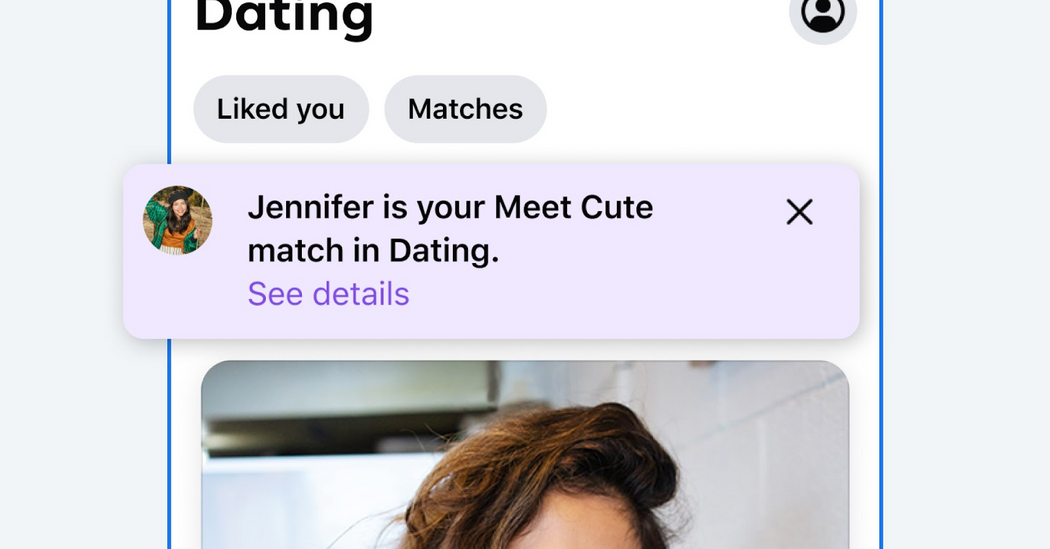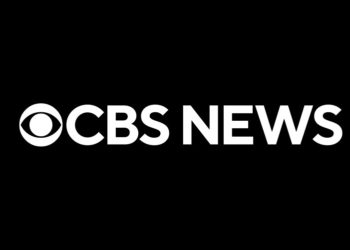For years, Alyssa Landguth, a 30-year-old from Washington State, used Facebook like most people do these days. She bought used furniture on Facebook Marketplace, the app’s version of an online garage sale, or commented on posts in her favorite Star Trek Facebook Group.
But after finalizing a divorce over the summer, a different feature has kept her coming back to the social network — Facebook Dating. It has become the only online dating service she uses, “cheaper than Christian Mingle and with more matches,” Ms. Landguth said.
Facebook Dating, which debuted in 2019, has become a surprise hit for the company. It lets people create a dating profile free in the app, where they can swipe and match with other eligible singles. It has more than 21 million daily users, quietly making it one of the most popular online dating services. Hinge, a leading dating app in the United States, has around 15 million users.
“Underlying it all is that there are real people on Facebook,” Tom Alison, the head of Facebook, said in an interview. “You can see who they are, you can see how you’re connected to them, and if you have mutual friends, we make it easy to see where you have mutual interests.”
Facebook Dating’s popularity is a sign of how Facebook has been reinventing itself. One of the early social networks, its main social feed has become less popular over time than younger apps like Instagram and TikTok. But along with Facebook Marketplace, where people look for deals on things like couches and used cars, Facebook Dating shows how an older social network can remain relevant.
“When you look at Gen Z usage on Facebook, they aren’t using the social media feed,” said Mike Proulx, a research director at Forrester VP, a research firm. “What’s bringing them back to the platform is Marketplace, Messenger, Dating.”
Facebook Dating is used by a small portion of the app’s 3 billion users, but it has grown as other dating apps have struggled. Conversations between users under the age of 30 rose 7 percent year over year, the company said. Earlier this year, Mr. Alison said he read a news article about the decline of the dating app industry and asked his team if Facebook’s dating service was hurting too.
“I’m like, ‘Are we declining?’” he said. “They’re like, ‘No, Tom, we’re growing.’”
Mr. Alison said he was pitched the idea for the dating product by a team of employees years ago, based on the millions of people already using Facebook to find romantic partners. That origin story is similar to Marketplace and Groups, where the company built the products around the popular but unintended ways that people were using the app.
Facebook Dating shows how Meta, which owns Facebook, Instagram and WhatsApp, is evolving “social networking” into two broad categories, Mr. Alison said. The first is content from apps like Instagram Reels that is algorithmic and mostly made by professional creators, and the second is services like Marketplace, Groups and Dating, which are local and more personal.
Facebook Dating is mostly popular with people over the age of 30, but it has around 1.8 million users in the United States in their 20s and hundreds of thousands of young adults creating new profiles in the app each month, the company said. It does not spend to market the service, but recently added a Dating tab to the bottom of some users’ Facebook apps.
Martin Springer, 68, who lives in Olympia, Wash., said he has used Facebook Dating for about a year and it is the only dating service he uses. He has had mixed success with it — many users were trying to scam him, like elsewhere on the app, he said — but it has become a daily habit to get his swipes in.
“Many of the people on there are looking for money, or drugs, or a sugar daddy,” Mr. Springer said. “But some of them are like me, looking for love.”
Mr. Alison attributed some of Facebook Dating’s success to it being free and easy for users. The company makes money from advertising revenue when users spend time on the Facebook app generally, a much different incentive than an app like Hinge, which makes most of its money from subscriptions. That has allowed Facebook Dating to develop new features that can be used by everyone, not just a small slice of paying users.
Among the new features is artificial intelligence. Last month, Facebook announced an A.I. dating assistant that lets users talk to it about their preferences in a romantic match. The assistant then searches for people on Facebook that meet the criteria.
Facebook also introduced an A.I. matchmaker called “Meet Cute,” which serves up one match a week for a user. The goal was to reduce swiping fatigue, the company said. The A.I. matchmaker will, ideally, sharpen its skills over time as it learns more about a user.
For those who do not want to rely on an A.I. matchmaker, Facebook Dating last year began letting people invite their friends on Facebook to be their matchmakers. The friend can take over swiping duties based on who they think would be a good match.
Ms. Landguth said she gave access to her sister, who has not done as much swiping as she had hoped.
“My sister is my matchmaker but unlike A.I., has never performed the job,” she said.
Eli Tan covers the technology industry for The Times from San Francisco.
The post Facebook Dating Is a Surprise Hit for the Social Network appeared first on New York Times.




